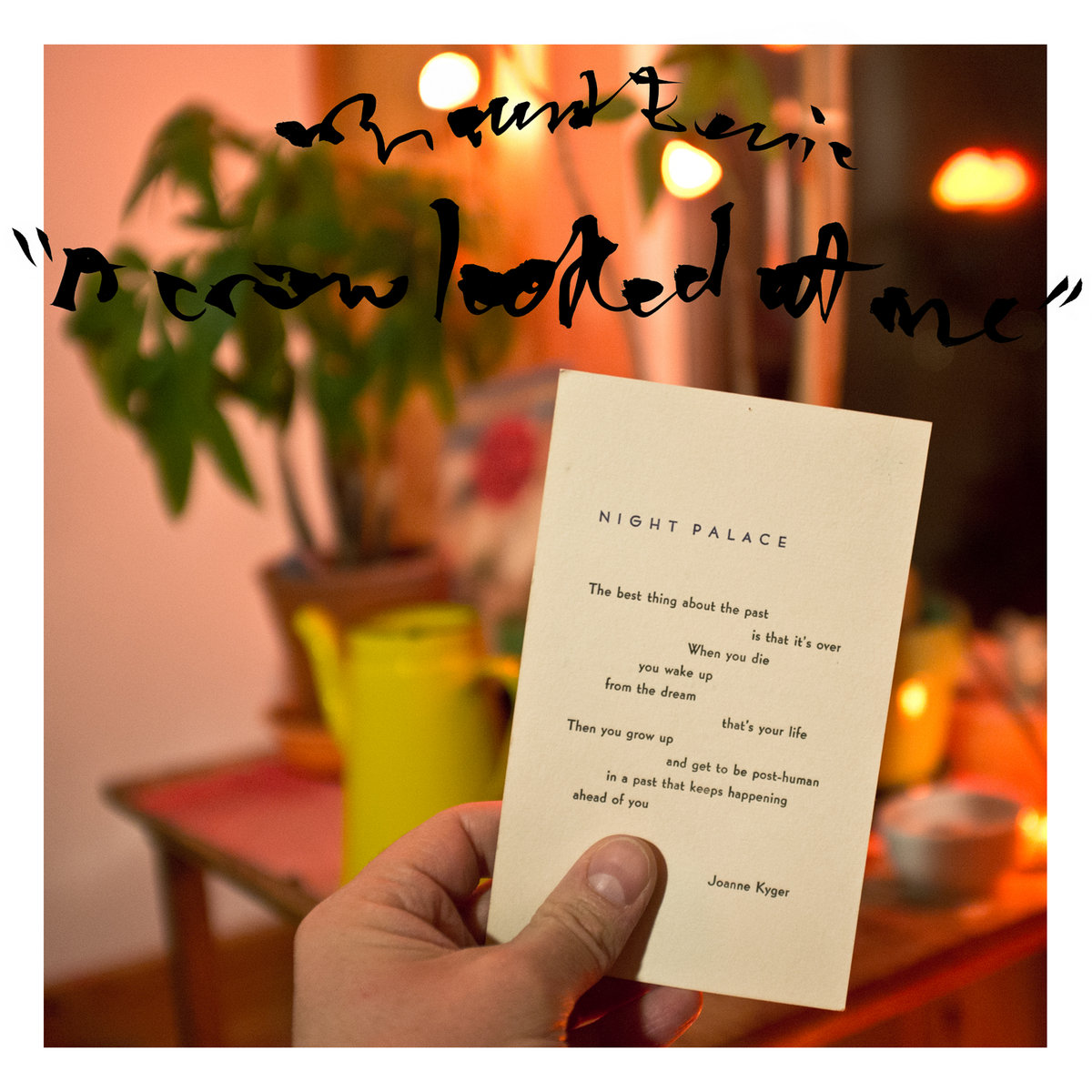This might just be the most powerful record I’ve ever listened to. And trust me, I’ve listened to a lot of records.
I’m going to refrain from being my usual jokey self for this
review. Centred around the recent loss of his wife to cancer, this new album
from singer-songwriter Phil Elverum (aka Mount Eerie) is predictably a heavy listen.
Any music that directly tackles a real life personal death is going to be a
heavy listen. Sufjan Stevens’ Carrie & Lowell and Sun Kil Moon’s Benji
are two recent examples of albums that engaged in such subject matter, both of
which I rated highly on this blog. But
this album has taken things one bold step further.
‘Death is real,’
Phil opens the first track ‘Real Death’. ‘Someone’s
there and then they’re not/ And it’s
not for singing about/ It’s not for making into art.’ Phil’s voice seems calm and there’s a warmth
to the guitars, but there’s something immediately alarming about how stark the
production is and how direct the lyrics are. Immediately, you realise that this
song is set barely a week after his partner Genevieve died – most likely
written a week after. Phil sets out describing his grief, walking into rooms
only to be met by emptiness, and most heart-wrenchingly, collapsing on the
doorstep after receiving a parcel delivered to her, by her, for their baby
daughter.
Whilst many singer-songwriters have mythologised loss, twisting it
into something profound but ultimately abstract, this album lays out loss and
all its personal torment in gritty detail. The tracks that follow are just as
raw and insistent in their detail. It eventually becomes apparent that they are
taking on a diary form, with each new song set a little longer after the death.
But Phil’s grief does not subside, but only take on new forms of pain as he
recounts the pain of clearing out her stuff, and later the realisation that real life memories are being replaced by photographs. Death even hangs heavy in the background as he describes in passing the burning of a nearby forest and, in a sick turn of events, the death of his counsellor.
Most striking is Phil’s refusal to give us any life lessons
regarding the subject. As he states at the end of ‘Real Death’: ‘I don’t want to learn anything from this’.
This is not a fun album. It betrays all the criteria I’ve
ever looked for in an album, not just through its unrelenting depictions of
grief, but by relying almost wholly on context as opposed to content.
Musically, the album is as basic as it gets. Having previously experimented in
genres from ambient electronica to black metal and having always shown a flair
for poetry, A Crow Looked At Me is
contrastingly stripped back to a bluntly delivered diary of events with often
nothing but an acoustic guitar to provide company – his wife’s guitar to be
exact (as if this wasn’t intimate enough, the whole thing is also played on her
instruments).
I spent much of this album clinging onto any glimmer of positivity
and hope that I could. But Phil simply delivers blow after blow of tragedy, so
much so that after a couple tracks I considered throwing in the towel. I didn’t
want to hear any more, because it was real, and we spend too much of our lives
avoiding the harsh reality of death. One can only hope that Phil is now slowly finding
relief – his final line ‘and there she
was’ may be the only glimmer of self-reassurance here, even if he is seeing
an apparition, or at the very least convincing himself that he has.
This album may well be the closest you can come through music
to experiencing the first-hand pain of a loved one dying. In many ways, it
transcends (and that’s a word I use sparingly) the very purpose of music –
although make no mistake, these are still very much songs by the very token
that they are sung and set to instrumentation.
Ordinarily an album this stripped back might feel underdeveloped.
However, the lack of time put into these songs is essential to the impact of
the album. Phil wanted these songs to feel raw and to capture the immediate
grief – had he given himself any more time to produce this album, he might have
also given himself more time to fine-tune it and reassess the lyrics. By
allowing the lyrics to stay raw, we are given grief without a filter – an exceptionally
daring thing to do when so many men might otherwise bottle up such feelings. He
is letting us into the most private pain one can experience. And yet he has
turned this pain into something positive – a piece of art by all accounts and
one that is revolutionary.
★★★★★
TRACK TASTER:
